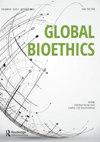Making sense of the future: visions and transition pathways of laypeople and professionals from six EU countries
Q1 Arts and Humanities
引用次数: 7
Abstract
In seeking to understand how young people conceptualise their future in terms of sustainability, visioning and backcasting workshops were held in six European countries, as part of the CReating Innovative Sustainability Pathways (CRISP) project. Within the visioning part of the CRISP project, over 1500 ideas and suggestions were generated, which were then condensed into three pan-European archetypical visions: One Ethical World, Local Community and i-Tech that exhibit radical alternatives for global and local futures. For the transition pathway development of these futures, backcasting workshops were held with the participation of young people and experts to develop suitable pathways towards each of the three visions with regard to three specific sectors, namely, household energy, individual mobility and food. This paper presents the novel methodology developed and applied in both sets of workshops and describes the innovative approach followed for synthesising strong, coherent transition pathways. The framework of actions of each vision's pathway towards a sustainable, low-carbon Europe is also presented to provide the basis upon which changes towards a sustainable future can be initiated both at structural and practical levels. The paper concludes with an evaluation of the pathways developed by comparing them to the UK 2050 pathways.理解未来:来自六个欧盟国家的外行和专业人士的愿景和过渡途径
为了了解年轻人如何从可持续发展的角度构想他们的未来,作为创造创新可持续发展途径(CRISP)项目的一部分,在六个欧洲国家举办了远景和背景研讨会。在CRISP项目的愿景部分,产生了超过1500个想法和建议,然后将其浓缩为三个泛欧原型愿景:一个道德世界,当地社区和i-Tech,展示了全球和当地未来的激进替代方案。为了这些未来的过渡途径发展,举办了有青年和专家参加的回访讲习班,以便在三个具体部门,即家庭能源、个人流动性和粮食方面,为实现这三个愿景中的每一个制定适当的途径。本文介绍了在这两组研讨会中开发和应用的新方法,并描述了综合强大,连贯的过渡途径所遵循的创新方法。每个愿景的行动框架,以实现可持续的,低碳的欧洲,也提供了基础上的变化,朝着可持续的未来可以在结构和实际层面启动。本文最后通过比较它们与英国2050年的路径来评估发展的路径。
本文章由计算机程序翻译,如有差异,请以英文原文为准。
求助全文
约1分钟内获得全文
求助全文

 求助内容:
求助内容: 应助结果提醒方式:
应助结果提醒方式:


